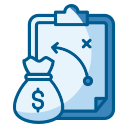Effectively managing debt is essential for achieving financial stability and long-term peace of mind. Whether you’re dealing with credit cards, student loans, or personal debts, adopting the right strategies can make all the difference in your journey toward financial freedom. This page explores proven techniques and insightful tips to help you control your debt and create a brighter financial future.
Knowing exactly how much you owe is the first step in managing debt successfully. Many people underestimate or overlook certain debts, which can hinder their efforts to become debt-free. Keeping accurate records of all your outstanding balances, minimum payments, and due dates helps prevent missed payments and costly penalties. Regularly reviewing your debts also allows you to spot errors, such as incorrect interest charges, and address them promptly. By developing this awareness, you gain control over your finances and reduce anxiety associated with untracked obligations. Staying informed empowers you to take concrete steps toward repayment and prevents unexpected surprises that could derail your progress.

Creating a Debt Repayment Strategy
Setting clear and achievable goals is vital for maintaining motivation during debt repayment. Unrealistic or vague goals can lead to frustration and eventually abandonment of your plan. Start by assessing your income and necessary expenses to determine how much you can reasonably allocate each month toward debt. Establish specific, time-based targets for when you want certain debts paid off. By breaking your total debt into smaller, manageable milestones, you’ll experience more frequent successes, fostering a sense of progress and accomplishment. Adjust your goals as circumstances change, ensuring that your plan remains both ambitious and attainable throughout your journey.

Managing Debt Through Financial Discipline
Developing Healthy Financial Habits
Cultivating strong financial habits is crucial for managing and eventually eliminating debt. These habits include monitoring your account balances, reviewing monthly statements for errors, spending intentionally, and seeking value in every purchase. Making a habit of reviewing your financial status regularly helps you catch problems early and adapt your plan as needed. Establishing a routine—such as a weekly financial check-in—reinforces good behaviors and reduces the temptation for impulsive spending. Over time, these habits become second nature, making it easier to stick to your budget and repay debts effectively. Embracing these practices not only supports your current financial goals but also creates a path for lasting financial security.
The Importance of an Emergency Fund
Building and maintaining an emergency fund is a safeguard against unexpected expenses that could disrupt your debt repayment plan. Without a financial safety net, unplanned costs like car repairs or medical emergencies can force you to rely on credit cards, pushing you back into debt. An emergency fund provides the reassurance that you can handle financial surprises without derailing your progress. Start by saving a modest amount and aim to gradually increase it to cover several months’ worth of essential living expenses. Knowing you have resources to draw on in challenging times gives you confidence and patience to stay focused on your debt management goals.
Avoiding the Temptation of New Debt
One of the greatest threats to debt repayment progress is the accumulation of new debt. It’s important to be mindful of spending habits, especially regarding credit card usage or taking out new loans. Establish clear rules for yourself about borrowing and make a commitment not to take on additional debt unless absolutely necessary. This might mean postponing certain purchases, finding lower-cost alternatives, or seeking out supplementary income streams. By limiting new debt, you protect the progress you’ve made and ensure that your hard work pays off. Practicing self-discipline and remaining committed to a debt-free lifestyle secures your financial future.

